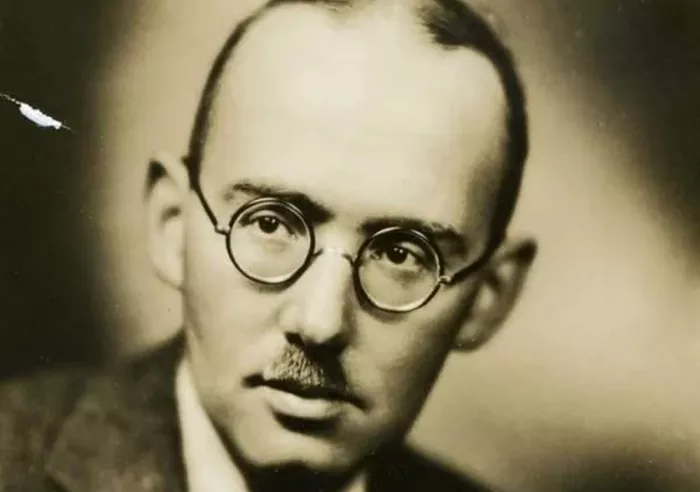Stephen Vincent Benét was a distinguished 20th Century American poet, storyteller, and novelist, whose works captured the essence of American history and mythology. Born in 1898, Benét was deeply influenced by his literary heritage and the cultural and historical landscape of the United States. His poetry and prose reflect his passion for American themes, making him one of the significant figures in American poetry during the early and mid-20th century. His works, such as John Brown’s Body and The Devil and Daniel Webster, stand as enduring testaments to his mastery of narrative verse and historical fiction.
Early Life and Literary Influences
Stephen Vincent Benét was born into a literary family. His father, Colonel James Walker Benét, was an avid reader and writer, while his siblings, William Rose Benét and Laura Benét, also became writers. This literary environment nurtured his passion for storytelling from a young age. He attended Yale University, where he honed his craft and developed an appreciation for the rich history of the United States. It was at Yale that he wrote The Ballad of William Sycamore, an early example of his ability to blend historical narrative with poetic form.
Major Works and Contributions to American Poetry
Benét’s most famous work, John Brown’s Body (1928), is a book-length narrative poem chronicling the American Civil War. This epic poem earned him the Pulitzer Prize and solidified his reputation as a leading 20th Century American poet. The poem not only depicts the war but also delves into the complex human emotions and ideologies that fueled the conflict. His ability to combine historical fact with poetic imagination sets him apart from many of his contemporaries.
Another well-known work, The Devil and Daniel Webster, is a short story that blends American folklore with moral allegory. The story, centered around a New Hampshire farmer who sells his soul to the devil and is later defended by the legendary lawyer Daniel Webster, highlights Benét’s fascination with American myth-making. His works often carry strong moral and patriotic undertones, making them resonate deeply with American readers.
Style and Themes
Benét’s poetry is characterized by its narrative strength, historical depth, and rhythmic structure. Unlike modernist poets such as T.S. Eliot and Ezra Pound, who experimented with fragmented forms and complex symbolism, Benét remained more traditional in his approach. His work is accessible, often adopting a storytelling style that engages readers directly. He had a keen ability to merge history with legend, elevating American history into poetic form.
His themes often revolve around war, heroism, and the American identity. Whether exploring the struggles of the Civil War in John Brown’s Body or the idea of destiny and patriotism in Western Star, Benét maintained a deep reverence for the past while also addressing contemporary concerns. His poetry reflected his belief in the enduring spirit of America, making him one of the most patriotic voices in American poetry.
Comparison with Contemporary Poets
Stephen Vincent Benét’s work can be contrasted with other prominent 20th Century American poets such as Robert Frost, Carl Sandburg, and Edna St. Vincent Millay. While Frost’s poetry is deeply rooted in rural New England and often explores themes of nature and human isolation, Benét’s work is more historical and mythological in its scope. Sandburg, like Benét, celebrated American history, but Sandburg’s free verse style and focus on industrial America set him apart from Benét’s structured, narrative-driven approach.
Similarly, while Millay was known for her lyrical and feminist themes, Benét remained focused on the grand narrative of America. Unlike the high modernists who sought to break from tradition, Benét embraced storytelling and classical poetic structures. His poetry stands as a bridge between traditional and modern American poetry, capturing the nation’s spirit in a way that remains compelling and accessible.
Legacy and Influence
Stephen Vincent Benét’s influence on American poetry extends beyond his own works. His commitment to historical and narrative poetry inspired later poets and novelists to explore similar themes. His patriotic vision and ability to weave folklore into literature have made his works enduring classics in American literary history.
Although his popularity waned in the later 20th century as modernist and postmodernist trends dominated American poetry, his contribution to the literary world remains significant. His works continue to be studied in academic settings, and his impact on historical and mythological storytelling within American poetry is undeniable.
Conclusion
Stephen Vincent Benét remains a vital figure in 20th Century American poetry. His ability to capture the essence of American history and folklore through compelling narrative verse distinguishes him from his contemporaries. While poets like Eliot and Pound pushed the boundaries of form and structure, Benét focused on storytelling and the American experience. His works continue to be celebrated for their historical richness and poetic beauty, securing his place among the great American poets of the 20th century.

